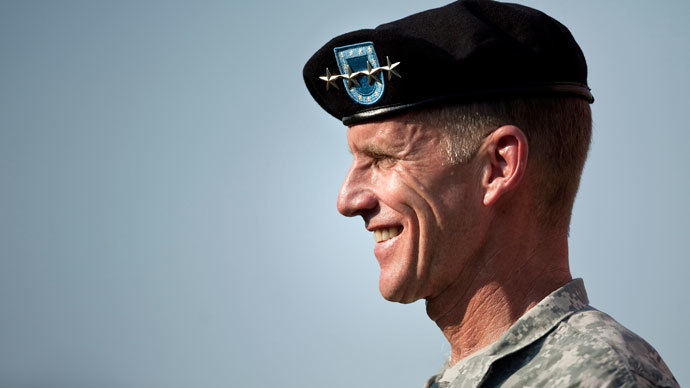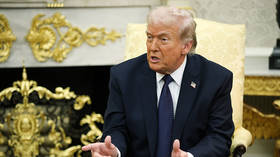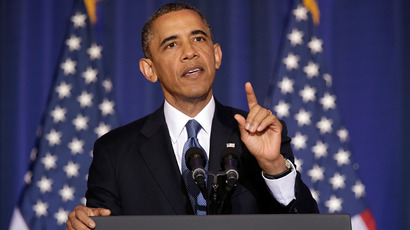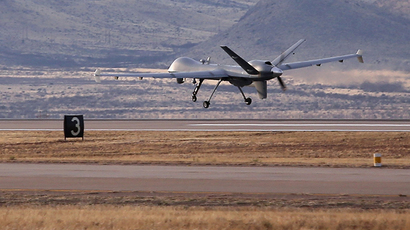Gen McChrystal: US drone activity causes 'tremendous resentment'

A retired US general who commanded NATO troops in Afghanistan for one year has warned that as the Middle Eastern nation sits on the brink of civil war, western forces must contend with widespread resentment about the US drone program.
General Stanley McChrystal, who led troops in Afghanistan from June 2009 to June 2010 before stepping aside after criticizing US President Obama in an interview with Rolling Stone, told the BBC that the West must help Afghanistan even after pulling out military forces.
He said that while the Taliban may not have the strength to fully re-take Afghanistan, the Islamist extremists would certainly be among the groups involved in an armed conflict.
“I think that would be a return – in the minds of the Afghans – to what they experienced in 1989,” McChrystal said. “But I don't think the Taliban have the strength to come in and take over Afghanistan...There is enough capacity in that country, and certainly enough ties that bind to avoid that.”
What has proven more difficult to avoid is the “tremendous amount of resentment” that US drones have caused throughout the region. When questioned about the future of surveillance and bombing conducted by the unmanned aerial vehicles, McChrystal said there is a danger that drones will be used as an “antiseptic.”
“There's a danger that something feels easy to do and without the risk to yourself, almost antiseptic to the person shooting, doesn't feel that way at the point of impact. And so it lowers the threshold for taking operations because it feels easy, there's a danger in that,” he said.
“And then the other part is there's a perception of arrogance, there is a perception of helpless people in an area being shot at like thunderbolts from the sky by an entity that is acting as though they have omniscience and omnipotence, and you can create a tremendous amount of resentment inside populations, even not the people that are themselves being targeted, but around, because of the way it appears and feels.”
“So I think that we need to be very, very cautions: what seems like a panacea to the messiness of war is not that at all,” he said during an interview with Today, the BBC's flagship radio show.
Days before McChrystal sat down for the interview, Yemeni officials told the United Nations Committee on the Rights of the Child that Yemen has set up a counseling center to treat families affected by drone attacks.
The general did say that, in the event of a civil war, Afghans are now more able to defend themselves than they were in the past. Where their loyalties may lie is another question.
“The ability of a nation to defend itself is partly in the number of the security forces it has but it is also in the fabric and sinew of its society and the confidence of its people,” McChrystal said. “I think that would be the part I would worry most about – that eroding confidence would cause people not to join the police, not to support the local government – that would be the most dangerous scenario.”














